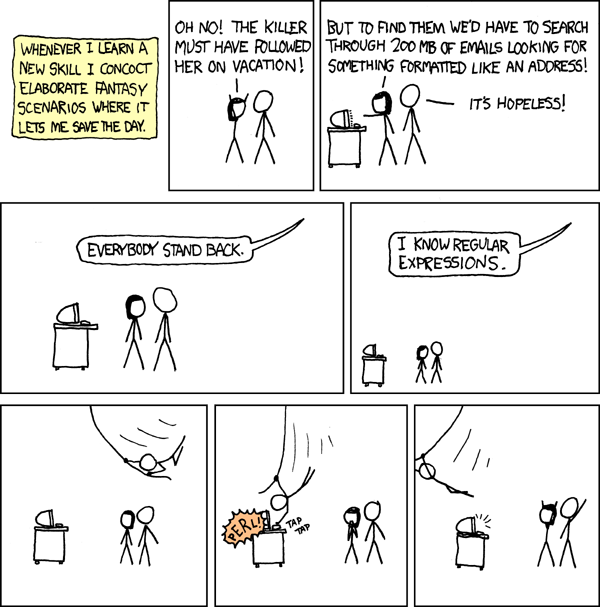this post was submitted on 01 Feb 2024
316 points (98.5% liked)
Comics
521 readers
1 users here now
A community for sharing comics related to programming
Icon base by Delapouite under CC BY 3.0 with modifications to add a gradient
founded 1 year ago
MODERATORS
you are viewing a single comment's thread
view the rest of the comments
view the rest of the comments

Learning basic regex takes less than a day. Learning extended regex takes a day or two.
If you're often writing Python scripts to scan strings and match patterns, I can almost guarantee you're actually wasting more of your time avoiding having to use regex.
In fact, if you're working with large datasets, you're wasting even more time waiting for your scripts to finish. Python's regular expression engine is written in C, which is considerably faster than plain Python.